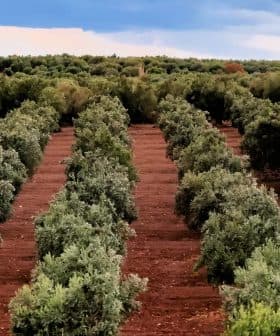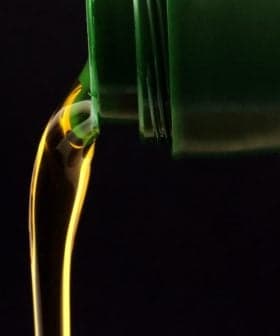The USITC Investigation of the Olive Oil Market: Thoughts from Legal Experts
The USITC is conducting a §332 investigation into the competitiveness of the U.S. olive oil industry, focusing on imports and product labeling practices, with a report expected by August 12, 2013. Such investigations can lead to trade actions, including AD/CVD investigations or complaints filed at the WTO, and are often requested by U.S. producers with specific objectives in mind.
 The U.S. International Trade Commission (USITC) has launched a so-called §332 investigation into the global competitiveness of the U.S. commercial olive oil industry. The investigation, Olive Oil: Conditions of Competition between U.S. and Major Foreign Supplier Industries, was requested by the U.S. House of Representatives Committee on Ways and Means and is discussed in the USITC’s web site.
The U.S. International Trade Commission (USITC) has launched a so-called §332 investigation into the global competitiveness of the U.S. commercial olive oil industry. The investigation, Olive Oil: Conditions of Competition between U.S. and Major Foreign Supplier Industries, was requested by the U.S. House of Representatives Committee on Ways and Means and is discussed in the USITC’s web site.
While its focus is broadly worded, the study is expected to consider the following: (1) the impact of olive oil imports into the United States from most notably Spain, Italy, and North African countries (e.g., Tunisia) on the U.S. market and U.S. producers; (2) conditions abroad faced by U.S. olive oil exporters; and, (3) product labeling practices and their market impact.
The USITC issues a report in §332 investigations, giving its objective findings and independent analyses on the subject investigated. The USITC makes no recommendations on policy or other matters, or otherwise takes any action, in these purely fact-finding investigations. Again, this is just a fact-finding investigation, itself having no direct trade impact (restrictive or otherwise).
But such §332 investigations are often followed by U.S. trade actions that can have a trade impact, including limiting imports. For example antidumping (AD) or countervailing duty (CVD) investigations look at whether imports into the United States are sold at unfairly low prices due to dumping or government subsidies, which injure (or threaten to injure) a U.S. industry. If so, remedial AD/CVD import duties are imposed. Or a §332 investigation can lead to U.S. objections to believed foreign trade barriers or unfair trade practices (such as subsidies), followed sometimes with formal complaints filed at the WTO, or USTR §301 actions against the objected to foreign practices. All of the above have happened before after U.S. §332 investigations. Section 332 investigations are not idly requested. They are requested for a purpose/objective.
It is noteworthy that trade press reports indicate that the global olive oil industry has been facing a pricing crisis, with sales prices at below cost or reasonable levels, and public requests for subsidies to survive (e.g., in Europe). Such conditions can lead to AD/CVD actions. Indeed they have as to olive oil in particular in Peru, South Africa, Australia Argentina and Mexico — against European olive oil subsidies (a number of these actions failed for failure to follow WTO AD/CVD rules). Domestic (U.S.) parties often pursue favorable USITC §332 reports, and then cite those reports in follow up AD/CVD actions.
Also noteworthy, U.S. olive oil producers have sought product quality labeling standards which could affect imports. The USITC is responsible for §337 investigations which can cover deceptive import practices, such as to the represented quality of product (some claim that is an issue with olive oil). Section 337 investigations can lead to a USITC order excluding accused imports from the U.S. market as long as the claimed deceptive practice continues. Section 337 investigations can only begin with the filing of a complaint by U.S. producers.
The USITC said that by August 12, 2013 it would submit its report on this §332 olive oil investigation to the House committee requesting it. In doing so, the USITC plans to hold a public hearing on December 5, 2012 (if requested by any party by November 14, 2012); and written submissions are due by Feb. 12, 2013. Interested parties (domestic U.S. producers, U.S. importers and/or foreign exporters/producers) often participate in §332 investigations to protect their interests
This §332 olive oil investigation has the making to be quite interesting, as to issues raised and contested, and implications for future trade actions. Generally, U.S. producers do not undertake efforts to get the U.S. Congress to request a §332 investigation unless they have some end objective in mind. Increasing olive oil imports into the United States (now at almost US$1 billion, at an annual rate), and their declining unit values, over the last three years, and especially thus far in 2012, can be an indication of potential trade actions – as has been in other industries.
Dr. Peter Koenig, Squire Sanders (US) LLP, Washington DC, tel 202 669 1901. Squire Sanders specializes in U.S. trade law cases, including USITC §332, AD/CVD and §337 investigations, has a strong lobbying practice, as well as participates in AD/CVD actions around the world. Squire Sanders is a global law firm with offices throughout the United States (including Washington DC and California), Europe, Australia, Argentina, Peru and North Africa, and co-counsel in South Africa and Mexico.









